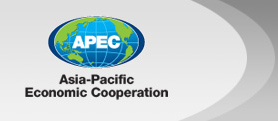APEC economy: Canada; Jurisdiction: Québec (Chambre de Notaires du Québec)
Temporary practice ('fly-in, fly-out' practice)
There is no express rule allowing temporary practice by foreign lawyers.
Limited licensing of foreign lawyers (foreign legal consultant rules)
A foreign lawyer cannot obtain a limited licence entitling them to offer advisory services in foreign and international law (ie become a foreign legal consultant).
Full licensing
A foreign lawyer can obtain a full licence to practise law in this jurisdiction.
The relevant legislation is the Notaries Act, the Charte de la Langue Française and the Professional Code.
In order to obtain a full licence to practise law in this jurisdiction, foreign lawyers must apply to the Chambre de Notaires for assessment of his or her credentials. In view of the particularities of Québec law, such applicants will typically be required to undertake several years of supplemental university level training in order for their credentials to meet the test of equivalence. They must then complete a 32-week internship. As is the case for all professionals in Québec, candidates for admission to the profession of notary must have sufficient knowledge of French to be able to practise in the profession.
These requirements are different from the rules applicable to a local applicant. They differ in that, after obtaining a law degree, a student educated in Québec must successfully complete a one-year diploma program in notarial law at one of three Québec universities or must obtain a Master of Laws degree from the University of Ottawa with the concentration in notarial law. Students must then complete a 32-week internship.
Commercial association between lawyers and law firms
In this jurisdiction:
- local lawyers may be employed by another local lawyer of a local firm;
- local lawyers may be employed by a foreign lawyer or foreign firm;
- foreign lawyers may not provide services in some other form of commercial association with local lawyers;
- foreign firms are not permitted to establish a commercial presence (a permanent office) to offer advisory services in foreign and international law.
Other regulatory issues
In this jurisdiction:
- foreign lawyers cannot establish an office in the absence of enabling legislation;
- there are specific rules in relation to advertising. These rules are included in the Code of Ethics, Chapter 4 (further detail is included in the database);
- there are specific rules in relation to use of names by lawyers or law firms. These rules are included in the Code of Ethics, Chapter 5 (further material is included in the database).
Contacts
| Category | Name | Website or other contact details |
|---|---|---|
| Organisation(s) that controls licensing of lawyers | Chambre de Notaires du Québec | www.cnq.org |
| Other associations playing a significant role in developing policy for the legal profession | Federation of the Law Societies of Canada | www.flsc.ca |
Other issues
In Canada, regulation of the legal profession is the exclusive responsibility of the Provincial and Territorial Law Societies. Law Societies are mandated by provincial law and territorial legislation to regulate the profession in the public interest. This includes setting rules governing admission to the profession. As such, the regulation of foreign lawyers who wish to practise in Canada is governed by the rules of the individual Law Societies. Law Societies are not representatives of, or advocates for, the profession. That role is fulfilled by organisations such as the Canadian Bar Association and its branches.
